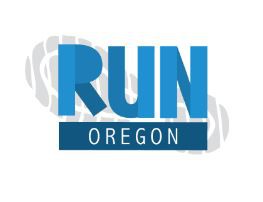
We here in Oregon seem to be on the cutting edge most of the time when it comes to environmental concern and “do-goodery”. From shopping local to cycling to recycling, we do a pretty good job. Alvin Goods is based out of our northerly Seattle neighbor, and their clothing line and ideals are right in line with this way of thinking as well.
There’s a big problem in the fashion industry that most don’t know about. Turns out clothing manufacturing is ridiculously hard on the planet. The fashion industry is the second largest polluter in the world behind the oil industry. Over 5% of the world’s landfill waste is made up of fabrics. That’s a lot. And out of that 5%, 85% of those fabrics could be recovered and repurposed to make new fabrics (but that doesn’t happen). On top of that, cotton farms and dated production practices means it takes approximately 40 gallons of water to make one pair of socks like the pair you’re probably wearing right now. The same goes for your knickers.
Our vision is to create an accessible, sustainable solution to the planet’s apparel problem. Using closed loop production practices, we’re producing sustainably made socks and underwear that you’ll actually want to wear and use everyday. Sure, we’re starting with the basics, but we’ve got the know-how to make pretty much anything we want!
With Arvin, we’ve got the potential to make a big shift in how clothing is made. Thing is, we need your help to get there. So, start at the basics with us, and let’s redefine how we think about the apparel industry.
The have started a Kickstarter campaign in order to take their products to the next level. They will be hiring a full-time product designer and setting up a global distribution network, as well as continuing to expand on their line and reduce global waste levels. So what makes them so cool? Well, they have a 4-step process to their stuff.
- Recover
- Return
- Build
- Repeat
Their process starts off by recovering post-industrial fabric scraps (the stuff that gets leftover when clothing items are made and cut). This way, they are not only helping get rid of scraps that may be tossed into landfills, but also don’t need to be reliant on cotton farms or large production facilities, both of which can eat up water and energy.
These scraps are taken to their one fiber and yarn production facility (50% solar-powered) to return them to the basic fabric fiber. They are combined with other recovered fibers to create their color schemes and fabric styles in all of their items – from underwear to socks and, eventually, beyond. They also want to continue to do this, so when your socks are worn out, send them back to Arvin so they can be reconditioned into new items and keep things sustainable!

Arvin has a few different styles of socks and sent us a handful to try out, including:
- No-shows
- Ankle
- Casual
- Gym socks
- Dress
Each comes with a different level of thickness and color schemes, depending on the style. The colors and designs are pretty straightforward (with just a touch of muted flair) for the time being, which is not a bad thing – we all need the essentials. I especially LOVE the gym socks – a perfect pair with more thickness for hitting the trails. Their no-show socks also have a little oval of silicone (or something similar) on the heel to help keep in place on your foot. Nice touch. Now these socks may not have the same “technology” that many running socks possess, but you can rest assured that they are comfortable AND better for the environment than the alternative.
Details:
Product: Arvin Goods: Waterless, Sustainable, Zero Waste Accessories
Company: Arvin Goods
Location: Seattle, WA
Funding Status: $10,530 of $10,000 (WILL BE FUNDED)
End Date: April 6, 2017
Pledge for: Starting at $20 for 2 pairs of socks; $30 for 2 pairs of underwear
Delivery Expectation: May 2017



